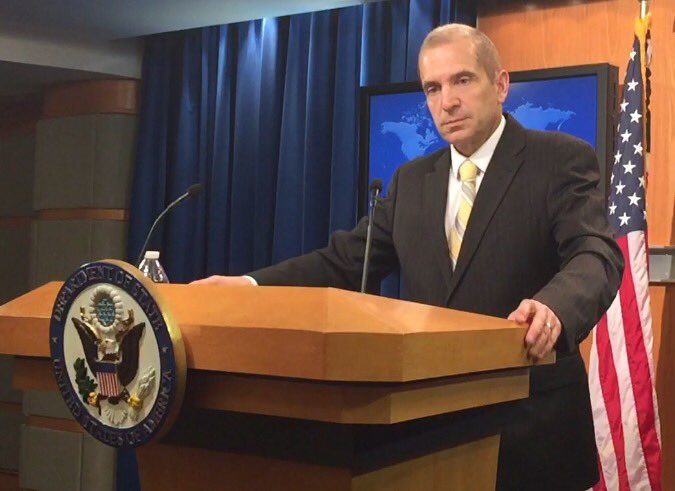From the Philippine News Agency (Feb 3):
Medal of Valor awards for 42 troopers of 'SAF 44' await Pres. Duterte's signature
The awarding of the Philippine National Police (PNP) Medal of Valor for the remaining 42 Special Action Force (SA) troopers who gallantly died in the Mamasapano massacre is just waiting to be signed by President Rodrigo Duterte, the Office of the Executive Secretary bared Friday.
In a statement, Executive Secretary Salvador Medialdea said “that considering the acts of heroism amid gallantry demonstrated by all of the SAF 44, the remaining 42 will also be awarded the PNP Medal of Valor.”
Earlier, President Duterte vowed to award the prestigious Medal of Valor, the highest award that can be given to a policeman, to all members of the so-called SAF 44 during his meeting with the relatives of the slain elite troopers last January 24 in Malacañang.
The President ordered PNP chief Director General Ronald dela Rosa to conduct a thorough review on the matter and furnish him with the result by the end of January.
“Look into it. Give me the result probably at the end of the month. If you think as a soldier that the 44 deserved the Valor, then recommend it and I will give it to them, all of them, the 44,” Duterte said.
On January 25, 2015, close to 400 elite SAF troopers entered the town of Mamasapano in Maguindanao to serve arrest warrants to two suspected terrorists -- Malaysian Jemaah Islamiyah leader Zulkifli bin Hir also known as Marwan and Filipino bomb maker Abdulbasit Usman.
They were able to kill Marwan but the operation triggered an intense firefight between two units of the police commandos and members of the Moro Islamic Liberation Front (MILF) and Bangsamoro Islamic Freedom Fighters (BIFF).
The clash led to the massacre of 44 SAF troopers who were trapped in two Mamasapano villages.
Of the 44, only two were awarded the Medal of Valor by then President Benigno Aquino III, while the rest were awarded the PNP Distinguished Conduct Medal.
The two Medal of Valor awardees were Senior Inspector Gednat Tabdi and Police Officer 1 Romeo Cempron.
With this development, the 42 remaining members of the SAF 44 are now set to receive the same awards and benefits of an awardee pending final approval by President Duterte.
Under Republic Act 9049, a Medal of Valor awardee gets a monthly gratuity of PHP20,000 separate and distinct from any salary or pension.
In the event of death of the awardee, the same shall accrue in equal shares and with the right of accretion to the surviving spouse until she remarries and to the children, legitimate or adopted or illegitimate until they reach the age of 18 or until they marry.
The remaining 42 SAP troopers are:
Sr. Insp. Ryan Ballesteros Pabalinas
Sr. Insp. John Garry Alcantara Erana
Sr. Insp. Max Jim Ramirez Tria
Sr. Insp. Cyrus Paleyan Anniban
Insp. Joey Sacristan Gamutan
Insp. Rennie Tayrus
SPO1 Lover L. Inocencio
PO3 Rodrigo F. Acob Jr.
PO3 Virgel S. Villanueva
PO3 Andres Viernes Duque Jr.
PO3 Vitoriano Nacion Acain
PO3 Noel Onangey Golocan
PO3 Junrel Narvas Kibete
PO3 Jed-In Abubakar Asjali
PO3 Robert Dommolog Aliaga
PO3 John Lloyd Rebammonte Sumbilla
PO2 Amman Misuari Esmulla
PO2 Peterson I. Carap
PO2 Roger C. Cordero
PO2 Nicky DC Nacino Jr.
PO2 Glenn Berecio Badua
PO2 Chum Goc-Ong Agabon
PO2 Richelle Salangan Baluga
PO2 Noel Nebrida Balaca
PO2 Joel Bimidang Dulnuan
PO2 Godofredo Basak Cabanlet
PO2 Franklin Cadap Danao
PO2 Walner Faustino Danao
PO2 Jerry Dailay Kayob
PO2 Noble Sungay Kiangan
PO2 Ephraim G. Mejia
PO2 Omar Agacer Nacionales
PO2 Rodel Eva Ramacula
PO2 Romeo Valles Senin II
PO1 Russel Bawaan Bilog
PO1 Angel C. Kodiamat
PO1 Windell Llano Candano
PO1 Loreto Guyab Capinding
PO1 Gringo Charag Cayang-o
PO1 Mark Lory Orloque Clemencio
PO1 Joseph Gumatay Sagonoy
PO1 Oliebeth Ligutan Viernes
Besides awarding them the Medal of Valor, President Duterte also assured their families that he would set “a day of remembrance” for the troopers.
“I will set a day. It will be known as ‘A Day of Remembrance’ for the SAF 44,” Duterte said.
http://www.pna.gov.ph/index.php?idn=0&sid=&nid=0&rid=960800





